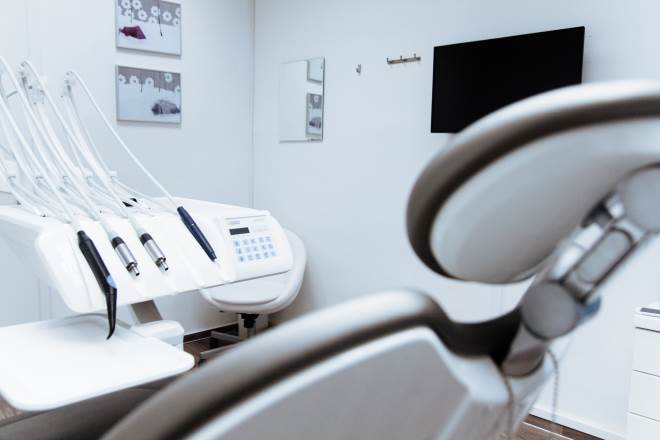Finding the Right Dental Care for Seniors in 2025
As people age, dental care needs may shift toward comfort, accessibility, and routine support. This article explores how to find suitable dental services for seniors in 2025, focusing on practical considerations that help maintain everyday oral health.

What are the key factors to consider when choosing a dentist for seniors?
When selecting a dentist for seniors, several crucial factors come into play. First and foremost, accessibility is paramount. Look for dental clinics that offer easy physical access, including wheelchair ramps, wide doorways, and comfortable seating options. Additionally, consider the dentist’s experience in treating older patients, as they may be more familiar with age-related dental issues and medications that can affect oral health.
Another critical factor is the range of services offered. Seniors often require a combination of preventive care, restorative treatments, and sometimes prosthodontics. A dental practice that provides comprehensive care can save time and reduce the need for multiple appointments at different locations.
How can you find dentists specializing in senior dental care?
Finding dentists who specialize in senior dental care has become easier in 2025, thanks to advancements in online resources and healthcare networks. Start by searching online directories that focus on geriatric dentistry or senior healthcare providers. Many of these platforms allow you to filter results based on specific needs, such as dentists who offer in-home services or those who accept Medicare.
Another effective method is to seek recommendations from local senior centers, retirement communities, or healthcare providers who work closely with the elderly population. These organizations often have established relationships with dentists who are experienced in treating seniors and can provide valuable referrals.
What questions should you ask a potential new dentist?
When considering a new dentist for senior care, it’s essential to ask the right questions to ensure they can meet your specific needs. Here are some key inquiries:
-
Do you have experience treating patients with conditions common in seniors, such as dry mouth or gum disease?
-
What accommodations do you offer for patients with mobility issues or cognitive impairments?
-
How do you handle emergencies, and what is your after-hours care policy?
-
Can you work with my existing medical conditions and medications?
-
Do you offer sedation options for anxious patients or those undergoing complex procedures?
-
What payment options do you accept, and do you work with Medicare or other insurance plans popular among seniors?
What are the essential dental care considerations for adults over 55?
For adults over 55, dental care considerations extend beyond regular check-ups and cleanings. Preventive care becomes increasingly important to maintain oral health and detect potential issues early. Regular screenings for oral cancer, which is more common in older adults, should be a standard part of dental visits.
Addressing dry mouth, often a side effect of medications or certain medical conditions, is crucial as it can lead to increased risk of tooth decay and gum disease. Dentists should be prepared to offer solutions and treatments for this common issue among seniors.
Additionally, the management of existing dental work, such as crowns, bridges, or dentures, becomes more critical. Regular assessments and adjustments of these prosthetics ensure they continue to function properly and comfortably.
What unique features should seniors look for in a dental clinic?
In 2025, dental clinics catering to seniors should offer a range of unique features designed to enhance comfort and care. Look for practices that provide:
-
Extended appointment times to accommodate slower mobility or additional explanation needs
-
Advanced imaging technology for more accurate diagnostics with less discomfort
-
Teledentistry options for consultations and follow-ups, reducing the need for in-person visits
-
Specialized equipment like chair lifts or adjustable dental chairs for patients with mobility issues
-
Collaboration with other healthcare providers to ensure comprehensive care
-
Patient education programs focused on senior oral health maintenance
How do dental implants fit into senior dental care in 2025?
Dental implants have become an increasingly popular option for seniors seeking to replace missing teeth. In 2025, advancements in implant technology have made the procedure more accessible and suitable for older patients. However, it’s important to consider several factors when exploring dental implants as a senior:
-
Overall health status and ability to undergo surgery
-
Bone density, which may require additional procedures like bone grafting
-
Healing time, which can be longer for older adults
-
Cost considerations, as implants may not be fully covered by insurance plans
-
Long-term maintenance requirements
When considering dental implants, it’s crucial to consult with a dentist who specializes in implantology for seniors. They can provide a comprehensive evaluation and determine if implants are the best option for your specific situation.
| Dental Implant Provider | Specialization | Key Features | Estimated Cost Range |
|---|---|---|---|
| SeniorSmile Dental | Geriatric Implantology | 3D imaging, minimal invasive techniques | $3,000 - $4,500 per implant |
| GoldenYears Oral Care | Full-mouth reconstruction | Sedation options, flexible financing | $3,500 - $5,000 per implant |
| Evergreen Dental Clinic | Single tooth replacements | Same-day implants, advanced healing protocols | $2,800 - $4,000 per implant |
Prices, rates, or cost estimates mentioned in this article are based on the latest available information but may change over time. Independent research is advised before making financial decisions.
Finding the right dental care for seniors in 2025 involves careful consideration of various factors, from accessibility and specialization to advanced technologies and personalized care options. By understanding the unique dental needs of older adults and asking the right questions, seniors can find dental providers who offer comprehensive, comfortable, and effective care tailored to their specific requirements.
This article is for informational purposes only and should not be considered medical advice. Please consult a qualified healthcare professional for personalized guidance and treatment.




